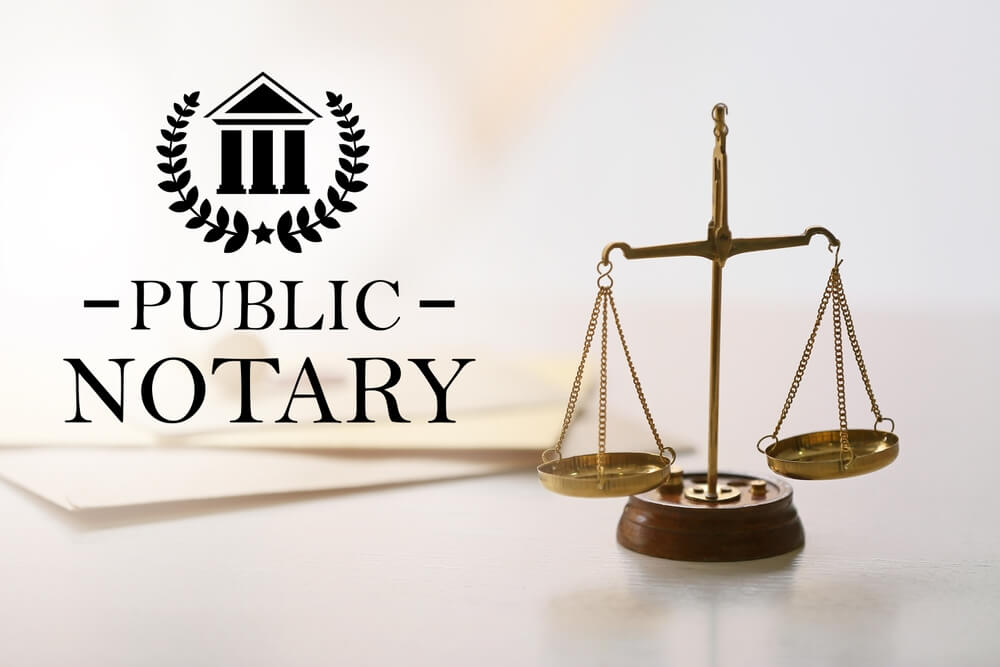Apostille Refine Explained: Streamlining Worldwide Record Confirmation
Apostille Refine Explained: Streamlining Worldwide Record Confirmation
Blog Article
Debunking Notarial Job: Streamlining the Function and Value of Notaries
In the elaborate web of legal documents and confirmation, notaries stand as columns of assurance and authenticity. Their function, often shrouded in secret for lots of, carries considerable weight in making certain the credibility and integrity of crucial files. As guardians of validity and truth, notaries play an essential component in our society, yet their job is not always completely recognized. By unraveling the complexities bordering notarial methods and shedding light on the importance of their acts, a clearer understanding arises of the crucial role notaries play in maintaining the textile of legal and legal agreements.
The History of Notarial Work
The background of notarial work days back to ancient worlds, where scribes played a critical duty in recording crucial information and confirming documents. This led to the development of notaries, individuals designated by the state to act as neutral witnesses in lawful issues.
Throughout the Center Ages, notaries obtained prestige in Europe, with their features increasing to consist of drafting lawful papers, certifying trademarks, and preserving records. The increase of worldwide trade additionally stressed the value of notarial work in confirming contracts and arrangements throughout borders.
In the modern period, notaries proceed to play a vital role in lawful and business deals by validating identities, verifying the authenticity of papers, and preventing scams. Their duty in certifying the legitimacy of arrangements adds a layer of security and depend the ever-evolving landscape of commerce and legislation.

Duties and Duties of Notaries
The historical evolution of notarial work from old human beings to the modern-day era has actually formed the distinctive obligations and obligations that notaries support in lawful and organization transactions today. Notaries play a crucial duty in confirming the credibility of records and the identity of signatories. Among their key duties is to witness the signing of crucial papers, such as acts, contracts, and wills, to make certain that all parties are getting in into arrangements intentionally and voluntarily. Notaries also validate that notaries are of audio mind and not under discomfort or threat.
Additionally, notaries are charged with administering affirmations and vows, which are vital in lawful proceedings and the implementation of testimonies. They certify duplicates of initial records, giving assurance to institutions that the duplicates hold true replicas of the originals. Notaries should keep exact records of all transactions they supervise to ensure transparency and liability. Generally, the responsibilities and obligations of notaries are important in protecting the honesty and legitimacy of different papers and purchases.
Notarial Certificates and Signatures
Exemplifying thorough focus to information, notarial certificates and signatures function as crucial components in verifying the authenticity of lawful files. Notarial certificates usually consist of important information such as the day of registration, the names of the signatories, a description of the file, and the notary's official seal. These certifications supply a clear document of the notarial act, ensuring that the file can be quickly recognized and traced back to the notary that oversaw the procedure.
Signatures play a crucial duty in notarial work, as they signify the contract and approval of the celebrations entailed. Notaries carefully witness the finalizing of papers to verify the identity of the signatures and validate that they are signing of their very own complimentary will. By fastening their main seal and signature to the paper, notaries certify that the needed treatments have been followed and that the file is enforceable and valid.
Fundamentally, notarial certificates and signatures are check out this site the trademark of credibility in legal purchases, providing guarantee to all events entailed that the records are genuine and binding.
Significance of Notarial Acts

Notarization Refine Described
The notarization process typically starts with the individual offering the record to a notary public. When the identity is verified, the notary ensures that the private authorizing the file does so voluntarily and without any coercion.

Verdict

Notarial certificates typically contain critical details such as the day of notarization, the names of the signatories, a description of the file, and the notary's official seal. These certificates give a clear record of the notarial act, making sure that the document can be easily recognized and traced back to the notary that supervised the procedure.
By affixing their main seal and trademark to the document, notaries certify that the needed treatments have been complied with and that the record is legitimate and enforceable.
By confirming the identification of the notaries, confirming their desire to enter right Conveyancer into the agreement, and certifying the day and place of the signing, notaries play an important role in supporting the legitimacy of lawful documents.After the file is authorized, the notary will certainly attach their official seal or stamp onto the file.
Report this page